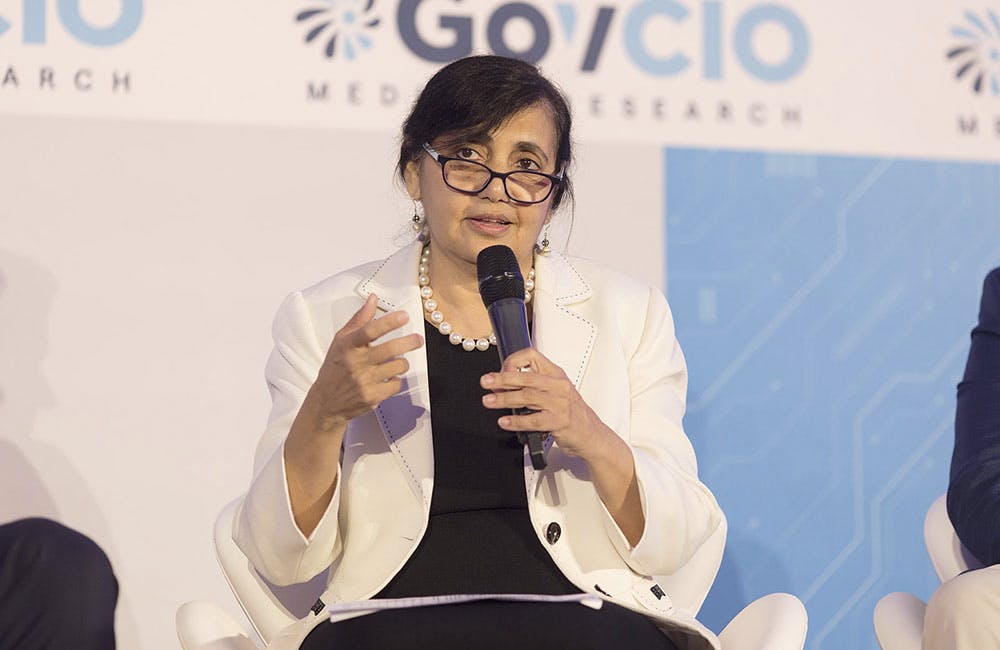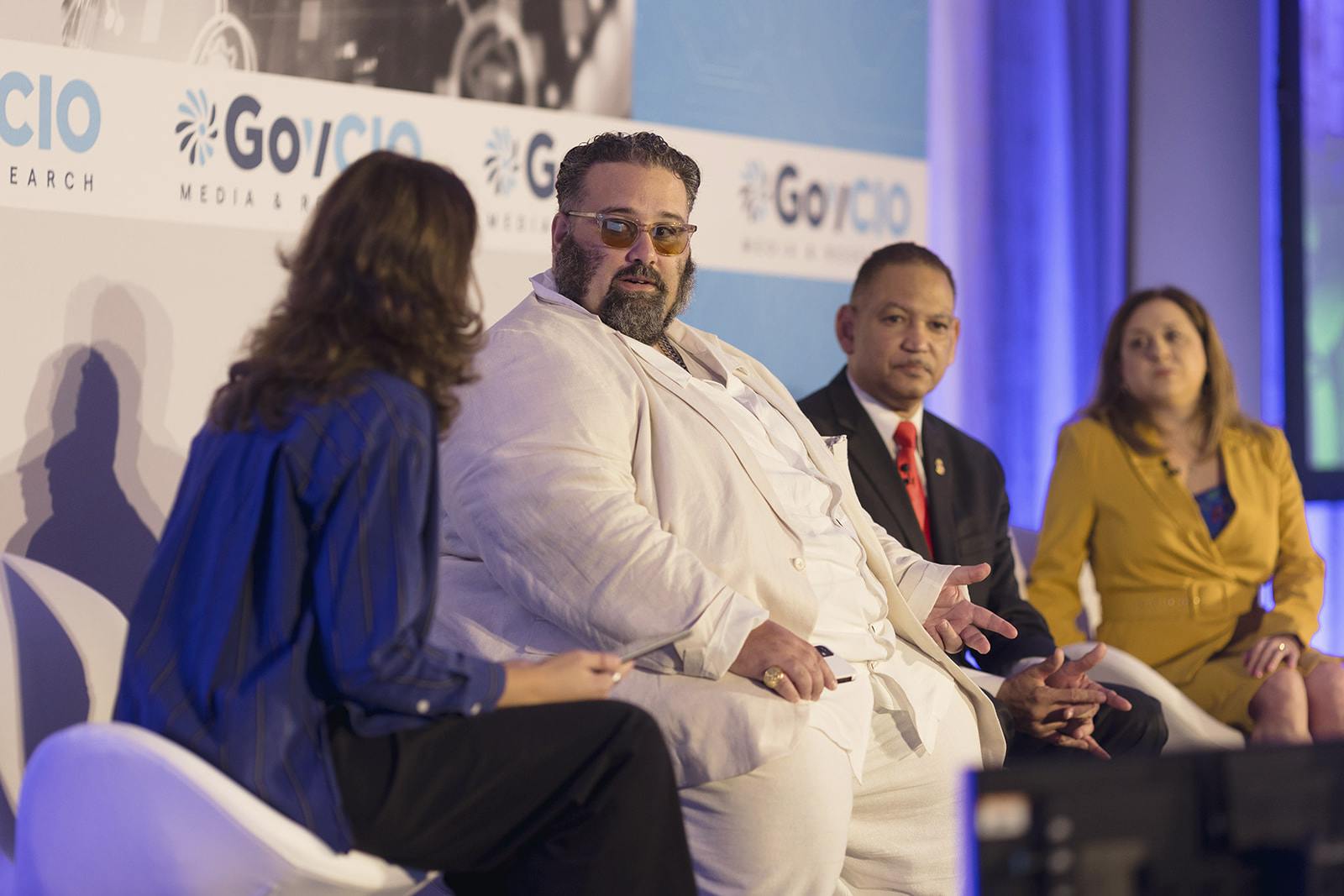Health Records Integration, Analytics Continue at VA During COVID-19
The challenges of the pandemic have only reinforced the importance of using data insights to improve patient care.

The Department of Veterans Affairs is continuing to prioritize health records consolidation and data analytics projects during the pandemic, agency officials said during an ATARC Data Analytics Working Group event.
VA Physician Informaticist John Scott emphasized the importance of the Defense Department and VA health records integration program — both as an avenue for improving continuity of care, but also for supporting advanced research and health data analytics projects.
“We are looking at complete medical records for 20 million people, with funding and an obligation to improve health promotion and preventive care for those people. So we have complete service records from active duty servicemembers, and when those people become veterans, the Veterans Health Administration follows those people’s outcomes for the rest of their lives,” he said. “We have both a longitudinal breadth and a health record fullness that amounts to one of the most powerful clinical data sets in the world.”
In looking at the VA’s standing challenges, Scott emphasized the current focus on reconciling the need for wholesale data integration with security and ownership protocols.
“People who have worked very hard to make sure a data set has been collected properly for good reason want to be very careful with it. So there’s a bit of a data ownership problem that’s born out of a sense of responsibility from a number of data stewards. So when we try to put all of that data together, we have to be able to assure that the various data stewards’ obligations for privacy and security can be met through good reference data management and data access control,” Scott said.
Nevertheless, Scott noted that the VA remains particularly attentive to tying its health records modernization with health analytics and research programs precisely because of the exceptional quantity of information it can manage and safely use internally.
“What makes us so uniquely powerful is that we’re large, and we’re a benefits provider, and we can do that kind of analytics within a HIPAA-covered space,” he said. “Then have a rapid translation of insights to the ongoing care of our beneficiaries.”
In outlining the unforeseen challenges of the COVID-19 pandemic, Senior Advisor at the VA’s National Artificial Intelligence Center Nevin Taylor noted that this substantial repository of health information will prove especially useful for answering difficult questions in the treatment and diagnosis of newfound diseases.
“One of the things we’ve recognized with COVID is the criticality of consistently collecting data,” Taylor said. “In finding a consistent means to collect data, you can consistently correlate it and put it in a contextual knowledge base with which to draw insights from.”
Taylor emphasized that continuing to develop the VA’s data analytics capacities through better organizing and leveraging its proprietary health data will be essential for advancing American health care more broadly, as well as responding to both current and future public health challenges.
“Effectively leveraging data becomes the means not just to answer specific questions, but helps you illuminate those questions and those insights that need to be explored. And more importantly, through adaptive correlations you can begin to start seeing trend analysis through temporal analytics,” he added. “From there you can begin to feed what you call cognitive intelligence, so that you can understand from those options what opportunities you have and what programs you can create in order to bring about the solutions you seek rather than just reacting to your circumstances.”
The COVID-19 pandemic has only thrown this into sharper relief for VA leadership, producing an active challenge that has helped refine the agency’s research priorities and modernization projects.
“The ability to do rapid data management is important, and COVID has really shined a light on that and made that obvious to all our leadership,” Scott said. “At both DOD and VA, a lot of people have put aside their regular work to answer questions our leaders were asking.”
This is a carousel with manually rotating slides. Use Next and Previous buttons to navigate or jump to a slide with the slide dots
-

Inside DOD’s Push to Grow the Cyber Workforce Through Academia
Diba Hadi gives her first interview since becoming principal director of the DOD’s Cyber Academic Engagement Office.
15m listen -

Agencies Tackle Infrastructure Challenges to Drive AI Adoption
Federal agencies are rethinking data strategies and IT modernization to drive mission impact and operational efficiency as new presidential directives guide next steps.
5m read Partner Content -

Generative AI Demands Federal Workforce Readiness, Officials Say
NASA and DOI outline new generative AI use cases and stress that successful AI adoption depends on strong change management.
6m read -

The Next AI Wave Requires Stronger Cyber Defenses, Data Management
IT officials warn of new vulnerabilities posed by AI as agencies continue to leverage the tech to boost operational efficiency.
5m read -

Federal CIOs Push for ROI-Focused Modernization to Advance Mission Goals
CIOs focus on return on investment, data governance and application modernization to drive mission outcomes as agencies adopt new tech tools.
4m read -

Fed Efficiency Drive Includes Code-Sharing Law, Metahumans
By reusing existing code instead of rewriting it, agencies could dramatically cut costs under the soon-to-be-enacted SHARE IT Act.
5m read -

Agencies Push Data-Driven Acquisition Reforms to Boost Efficiency
New initiatives aim to increase visibility of agency spending, improve data quality and create avenues to deploy solutions across government.
5m read -

Data Transparency Essential to Government Reform, Rep. Sessions Says
Co-Chair of the Congressional DOGE Caucus Rep. Pete Sessions calls for data sharing and partnerships to reduce waste and improve efficiency.
5m read -

DOD Turns to Skills-Based Hiring to Build Next-Gen Cyber Workforce
Mark Gorak discusses DOD’s efforts to build a diverse cyber workforce, including skills-based hiring and partnerships with over 480 schools.
20m listen -

AI Foundations Driving Government Efficiency
Federal agencies are modernizing systems, managing risk and building trust to scale responsible AI and drive government efficiency.
40m watch -

Trump Executive Order Boosts HBCUs Role in Building Federal Tech Workforce
The executive order empowers HBCUs to develop tech talent pipelines and expand access to federal workforce opportunities.
3m read -

Navy Memo Maps Tech Priorities for the Future Fight
Acting CTO’s memo outlines critical investment areas, from AI and quantum to cyber and space, as part of an accelerated modernization push.
5m read
















